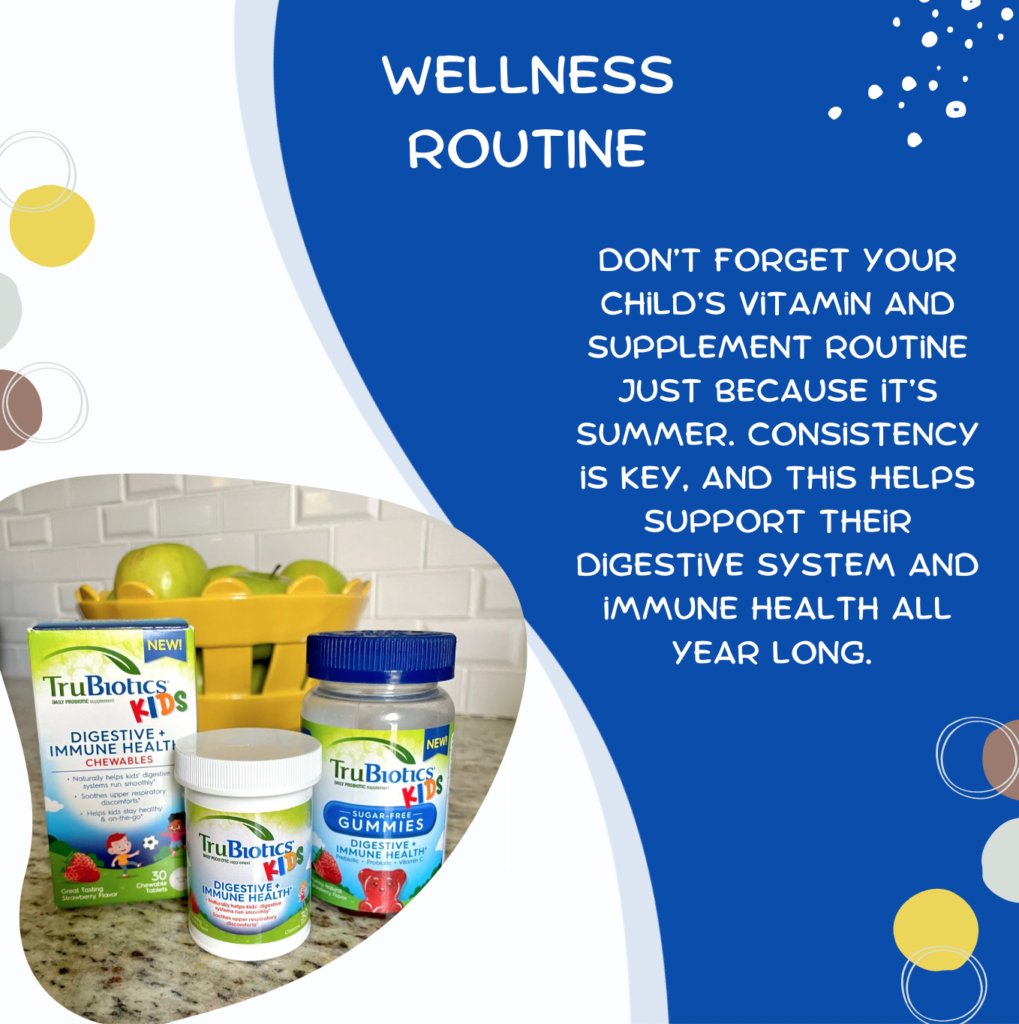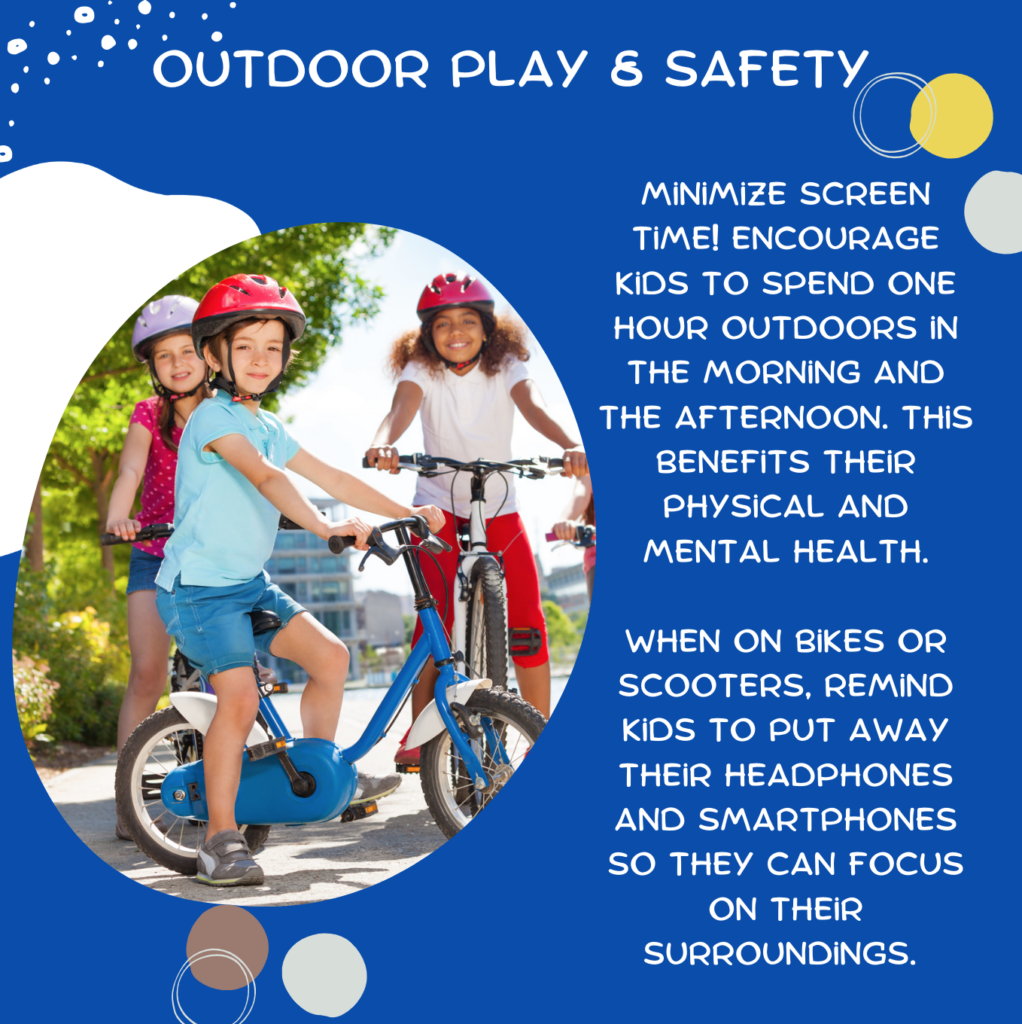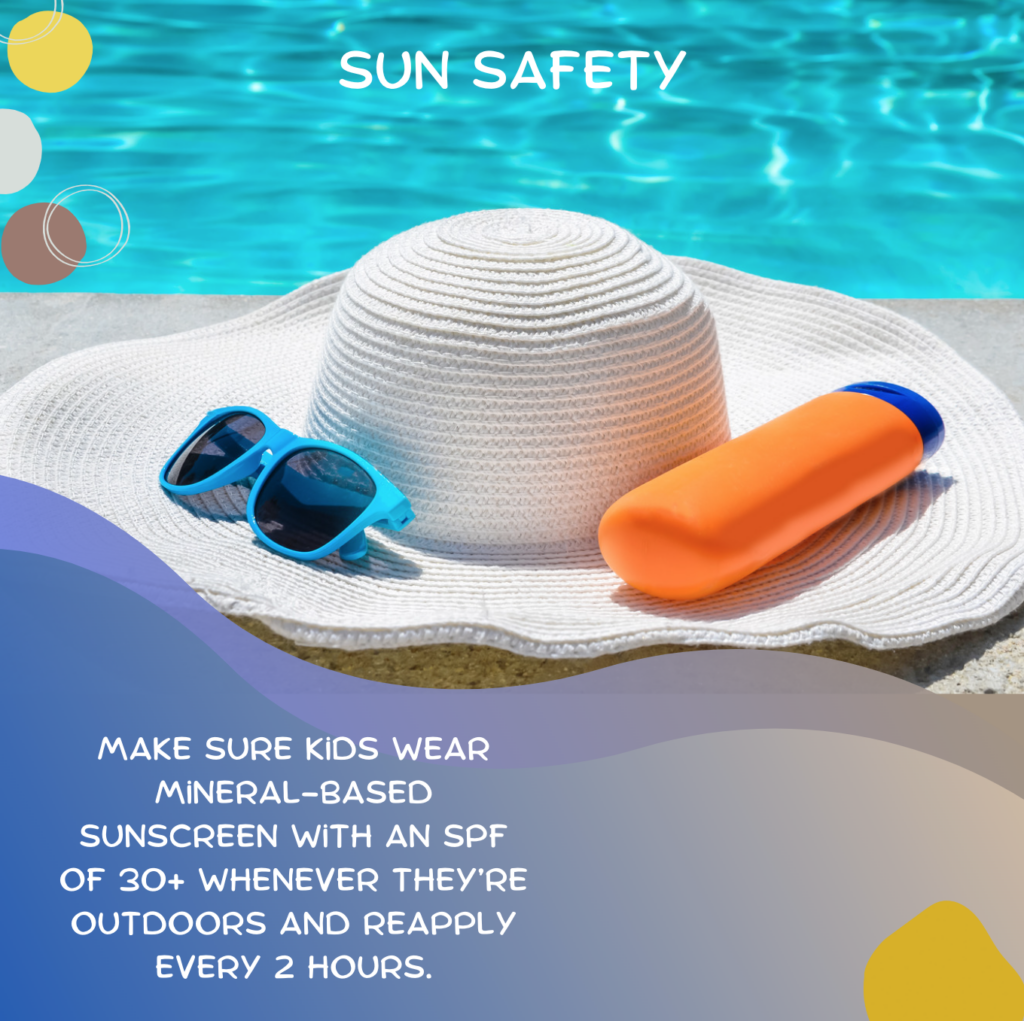As the sun shines brighter and the days grow longer, summer brings a wealth of opportunities for kids to enjoy outdoor adventures, delicious seasonal foods, and plenty of fun in the sun. However, as a pediatrician, I know that summer also presents unique challenges in keeping our little ones healthy and safe, especially when we are away from our homes and traveling. From ensuring they get the right nutrition and proper hydration to protecting them from the sun’s harmful rays, here are some essential tips for maintaining your child’s well-being throughout the summer.
Nutritious Seasonal Foods: One of the best parts of summer is the abundance of fresh fruits and vegetables available. Take advantage of this by incorporating plenty of colorful produce into your child’s diet. I advise families to try to get their children to “eat a rainbow” incorporating a fruit and/or vegetable at every meal. If you’re traveling and find your kids grabbing pancakes and sugar cereals from the buffet, remind them to grab a fruit and protein as this will help them feel fuller and prevent sugar highs/lows, or mood swings. From juicy watermelon and sweet oranges to crisp cucumbers and vibrant bell peppers, these foods are not only delicious but are also packed with essential vitamins and minerals such as Vitamin C, Vitamin A, lutein, folate, and potassium to support a growing child’s immune health, vision and cognition.
Proper Hydration: As temperatures rise, it’s crucial to keep your child well-hydrated to prevent heat-related illnesses such as dehydration and heat exhaustion. Encourage them to drink plenty of water throughout the day, especially during outdoor activities. To make hydration fun, consider using colorful water bottles or adding slices of fruits like lemon or berries to infuse their water with flavor. Additionally, remind them to take water breaks regularly, especially if they’re engaging in vigorous physical activities. Children ages 1–3-year-olds need about four cups per day of fluid, 4–8-year-olds need five cups per day and older children need seven to eight cups per day.

Consistency with Vitamins and Supplements: Just because it’s summer break doesn’t mean you should take a break from giving your kids their medications, vitamins, and supplements. In fact, maintaining a routine of supplements, like probiotics, can help support their immune health, ensuring they stay strong and resilient against common illnesses, and regulate their digestive systems—a win-win! I like TruBiotics Kids Chewables or TruBiotics Kids Gummies for kids 2 and up because they are clinically proven to support children’s developing digestive and immune systems. They also help with the frequency and consistency of bowel movements, so kids feel, eat, and function better. Of course, consult with your doctor first before starting or stopping a supplement or medication regimen.
Allergy Management: Summer brings with it a host of allergens, including pollen, grass, and insect bites or bee stings, which can trigger allergic reactions in some children. To minimize exposure to outdoor allergens, keep windows closed on high pollen days and avoid outdoor activities during peak pollen hours. Remove shoes when entering the home so pollens are not tracked indoors. If your child suffers from food allergies or insect allergies, make sure they always have access to their allergy medications, and keep emergency contacts handy in case of severe reactions.

Outdoor Play and Minimal Screentime: I get it, it’s hard to get your kids off their screens sometimes, especially on rainy days. But when it’s nice out, encourage them to spend at least one hour outdoors in the morning and again in the afternoon engaging in a physical activity instead of being glued to their devices. Though it can be difficult to do, limiting screen time should be a priority. Children under the age of 24 months should have minimal to no screen time and never view anything without an adult co-viewing to talk and teach about what is being watched. The same goes for children ages two to five, whenever possible, and limit it to less than one hour. Choose nonviolent, interactive, educational media for all children. Make sure that media is not displacing other important activities such as sleep, mealtime, school, homework, sports, chores, family time, and face-to-face socializing.
Whether it’s playing tag in the backyard, riding bikes around the neighborhood, going to the beach or swimming, or exploring a nearby nature trail or park, outdoor play is not only fun, but also beneficial for their physical and mental health. Limiting screentime also helps prevent eye strain, promotes better social skills and sleep quality, and elevates mood, allowing them to fully enjoy their summer.

Sun Protection: If kids are going to be outdoors more, they are going to have increased sun exposure. Therefore, it’s crucial to protect your child’s skin and eyes from harmful UV rays. Make sure they wear sunscreen with an SPF of at least 30 whenever they’re outdoors, even on cloudy days. I suggest a mineral-based sunscreen over a chemical-based one as it physically blocks the sun’s harsh rays. Chemical sunscreens may cause skin reactions in some people especially those with sensitive skin. Reapply every two hours, especially if they are running around sweating or after swimming. You can also have them wear clothing labeled UPF (Ultraviolet Protection Factor). Additionally, don’t forget to provide them with sunglasses that offer UV protection to shield their eyes from harmful rays and a hat to further offer protection from the sun.
Safety First: With more kids getting cell phones, we’ve seen an increase in biking injuries and accidents, unfortunately, according to this Global Pediatric Health article. Just like when driving a car, remind your kids to put away their headphones and smartphones so they can hear their surroundings and stay alert while on the move. This is essential for their safety, especially when navigating busy streets or crowded parks.
Also, for kids just starting to venture out on their bikes and scooters alone, make sure they understand the rules of the road—who has the right of way, the side of the street they should ride on, how/when to cross the road, etc. Lastly, always ensure your child wears a helmet to protect their head in case of falls or accidents.
Balancing Activity with Rest: While it’s essential for kids to stay active and enjoy outdoor play, it’s equally important to ensure they get enough rest and downtime. Schedule regular breaks during outdoor activities to prevent exhaustion and overheating. Encourage quiet activities indoors during the hottest part of the day, such as reading, board games, puzzles, or arts and crafts, to give them a chance to recharge. Additionally, establish a consistent bedtime routine to ensure they get adequate restful sleep each night, setting them up for a day of fun-filled adventures tomorrow. Summing Up: While summer is a time for relaxation and fun, it’s essential to stay on top of your child’s health and well-being. By following these tips, you can help them stay healthy and happy while on school break. As always, if you have any questions or concerns about your child’s health, don’t hesitate to reach out to your pediatrician for guidance and support. Here’s to a safe and enjoyable summer filled with memories that will last a lifetime!